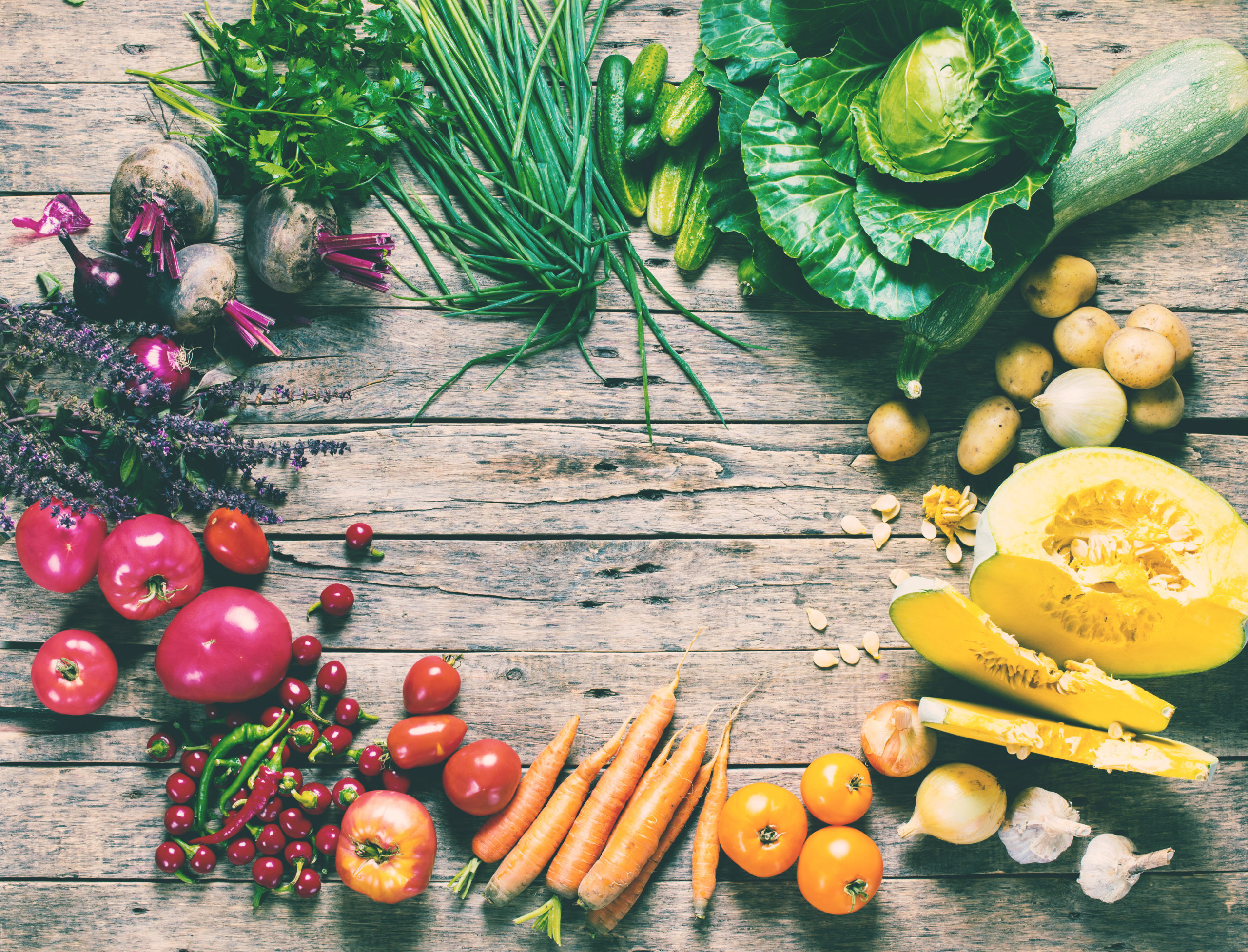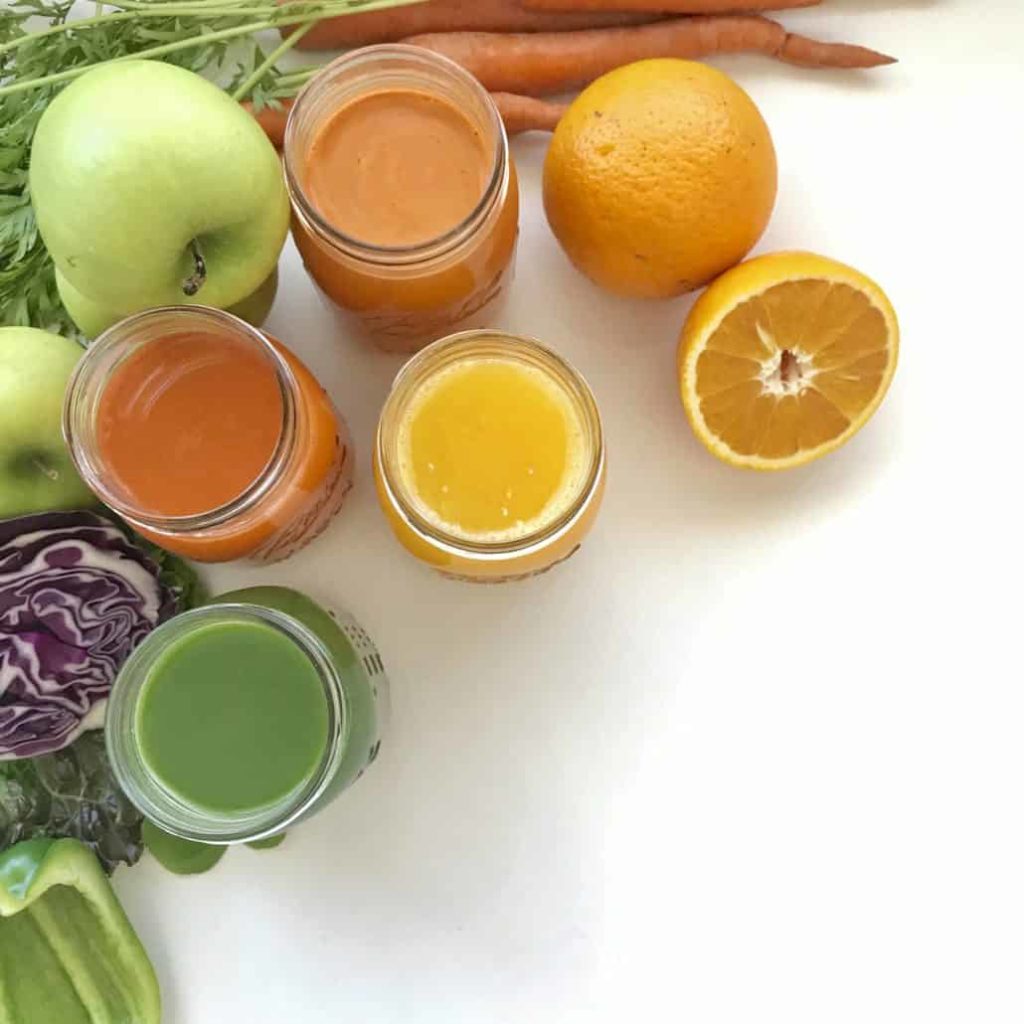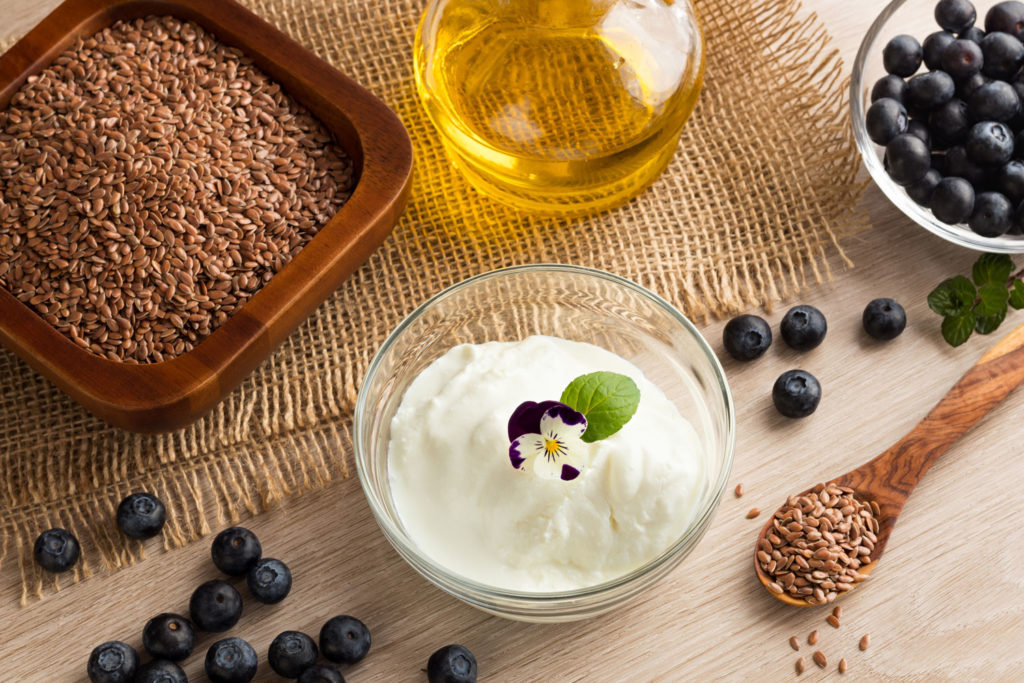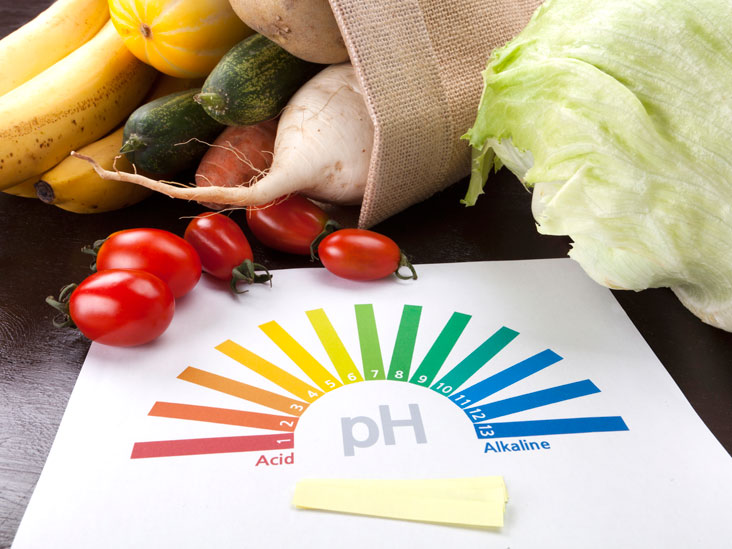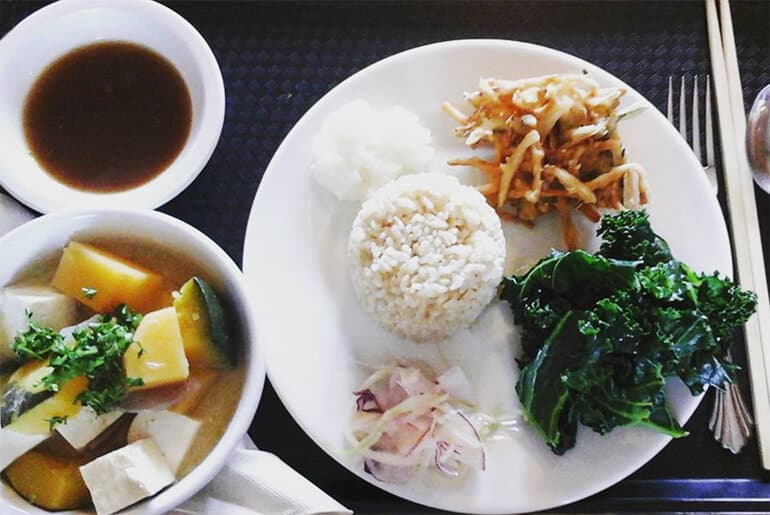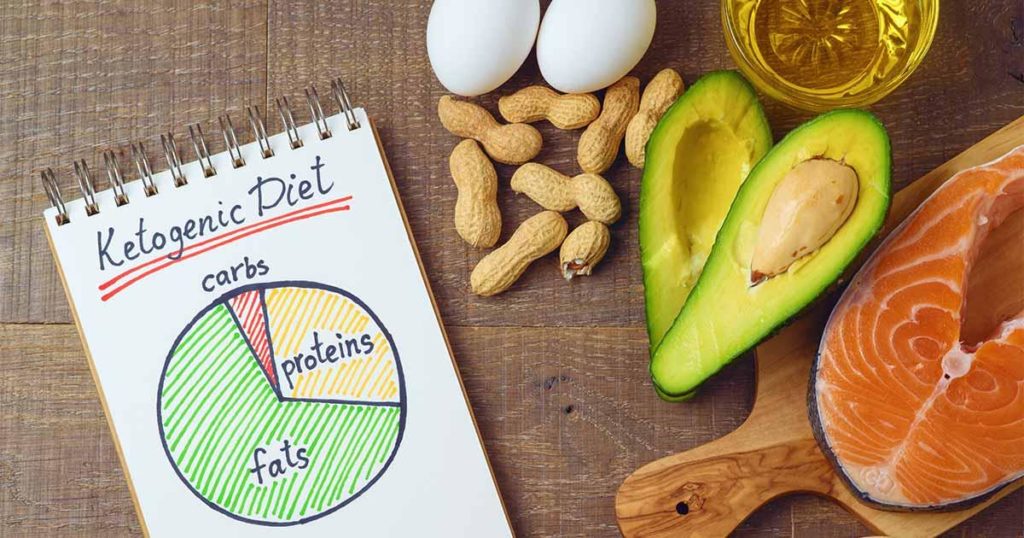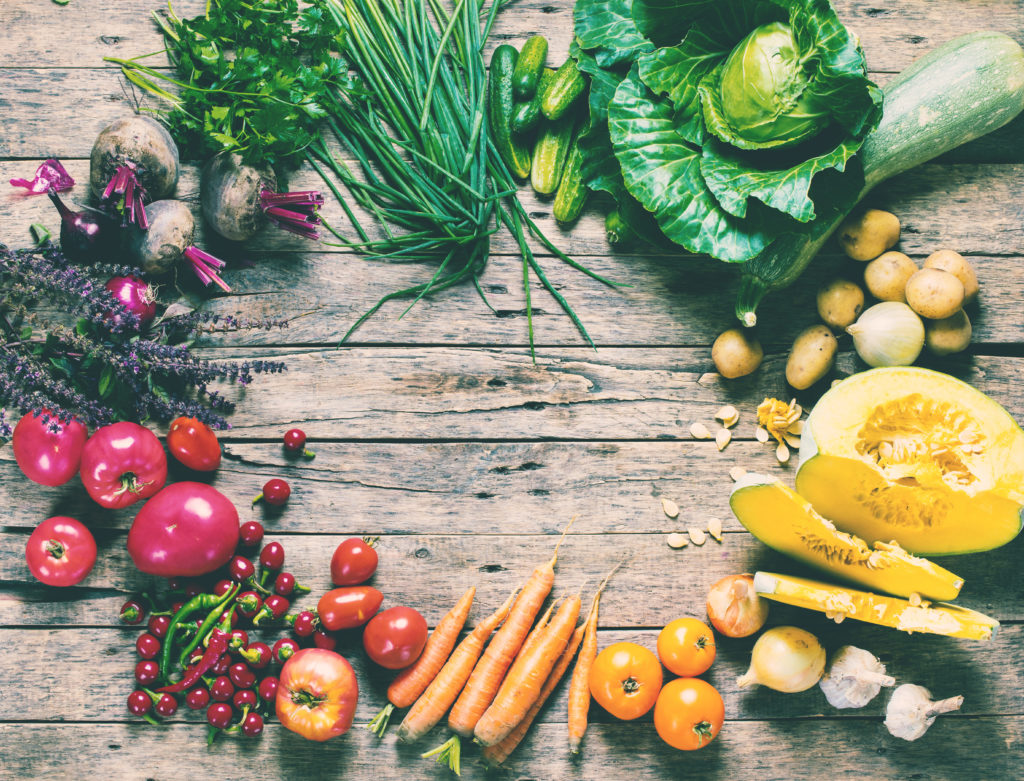
You want to do everything you can to help your body heal & recover from cancer and you already recognize how important your diet it is…that’s why you’re here, right?!
BUT when you start your Google search of “cancer & diet” the vast amount of advice is nothing short of overwhelming. And worse yet, many of it is contradicting. This leaves you confused, frustrated, and unsure of which one to follow.
I’m going to break down the pros and cons of 5 popular diets for cancer and pull out the overarching messages to help you put together your best anti-cancer diet.
Because the truth is that some of the advice is really good and some of it could be harmful depending on your current state of health and your type of cancer.
Let’s finally get to the bottom of the question…”What should I be eating to help my body recover from cancer?!”
Food Matters
First, let’s agree that food actually matters. Despite what your oncology team may be telling you, the food you choose could be helping your body heal OR helping the cancer grow and thrive!
It’s hard to understand why traditionally trained oncologists are still so reluctant to admit this. The connection between nutrition and cancer was suggested as early as the mid-1800’s! This isn’t a new or radical concept.
In 1980, researchers at Oxford University published a landmark review of the factors known at the time to affect cancer risk. And even they suggested that 35% of cancer could be attributed to diet, with a potential range as great as 10-70%!
Since then, the evidence for the connection between dietary choices and cancer continues to grow.
You can read more about the research regarding Nutrition & Cancer here: (1, 2, 3, 4, 5, 6)
So we can agree that your food choices do in fact matter. But the next natural question is…”which diet should I follow?”
An internet search of “anti-cancer diet” or “diet to fight cancer” or “cancer healing diet” brings up many different options. Let’s take a look at some of the more popular ones you may have come across.
Diet 1: Gerson Therapy
The Gerson Therapy was first suggested as a natural treatment for cancer in the 1930’s by Dr. Max Gerson. Advocates claim that the therapy can detoxify the body while building up the immune system in order to help the body fight cancer naturally. The Therapy includes an organic vegetarian diet plus supplements, enzymes, and enemas.
Protocol Details
- 15-20 lbs of organically grown fruits & veggies daily (mostly in the form of fresh juice)
- 1 glass of fresh juice every hour, up to 13 times per day (mostly carrot-apple & green juices)
- 3 plant-based meals each day
- A long list of supplements, including enzymes, hormones, various vitamins & minerals, and more.
- Coffee enemas, up to 5 per day
- Therapy is generally recommended to continue between 18 months and 2 years.
My Thoughts
I do believe that an organic, plant-heavy diet needs to be at the foundation of an anticancer diet. The radical change alone from a Standard American Diet to this could certainly contribute to a big healing shift. And I definitely agree that taking steps to support both detoxification and the immune system are critical in helping the body heal and recover from cancer.
Gerson Therapy is one way to do it but I don’t think it would be a great option for everyone. I’m not convinced that the various supplements and daily coffee enemas are appropriate for everybody (or necessary). It’s also a very intensive protocol, which would only work if you had a strong motivation to stick with it and a solid support network of people who could help you stick to it.
I also don’t think it would be wise to follow this Therapy in its entirety while also moving through chemotherapy. I imagine that the cleansing action of both treatments could be too much for most people to handle and may result in intense side effects.
You can read more about Gerson Therapy here: (1, 2, 3, 4, 5)
Diet 2: Budwig Diet
The Budwig Diet is used on its own or sometimes in combination with Gerson Therapy. It was created as part of a full protocol by Dr. Johanna Budwig in the 1950’s.
Dr. Budwig was a biochemist and claimed to discover that the right combination of quark (a type of soft cheese) or cottage cheese plus flax seed (linseed) oil had therapeutic properties in both preventing and treating cancer.
She found that the sulphydryl groups in quark or cottage cheese bind with the unsaturated fatty acids in flax seed oil and cause a chemical reaction, which allows the flax seeds to become water soluble and enter into a cell to supply energy. This process is thought to restore the electrical charge of the cells helping them oxygenate and kill cancer cells.
Protocol Details
- 4 Tbsp of cottage cheese (or quark) blended with 2 Tbsp of flax seed oil, eaten 2-4 times per day.
- 1-2 Tbsp of freshly ground flax seeds sprinkled on top of the mixture.
- Organic, plant-based diet with lots of fresh vegetable juice
- No sugar, processed foods, butter, margarine, animal meat, or leftovers
- Daily sun exposure
- The original protocol does not include the use of any supplements
- Enemas are sometimes recommended
My Thoughts
I can definitely get behind the basic recommendations of the protocol…lots of plant foods, fresh vegetable juice, little to no sugar or processed foods, as well as daily sun exposure (aiming for adequate levels of vitamin D). Increasing your intake of Omega-3’s is also a great idea. Whether that needs to be specifically in the cottage cheese and flax seed oil mixture described above, I’m not sure?
Although I do think it would probably be safe for most people to try, perhaps even in addition to other treatments or therapies. There is some promising research regarding flax seed and cancer but I would tend to lean more towards freshly ground flax seeds that still contain fiber and lignan, since we know these 2 compounds also have cancer fighting properties.
The only precautions I can think of are potential digestive distress from the high level of flax seed oil and an increased risk of bleeding depending on what other medications are being taken.
You can read more about the Budwig Diet here: (1, 2, 3, 4, 5)
Diet 3: Alkaline Diet
The Alkaline Diet is based on the theory that eating certain foods can change the body’s acid levels, also called the pH levels. Some studies have shown that acidic environments help cancer cells grow. So the idea is that a diet high in alkaline foods (high pH) and low in acidic foods will raise the body’s pH levels, making the body more alkaline, and preventing or even curing cancer.
It’s important to note here that some studies have also shown that cancer can successfully grow in alkaline environments.
Let’s review some basic physiology…
It is true that once a food has been digested and metabolized in the body it leaves an “ash” of minerals and compounds that are either more acidic or alkaline/neutral. Now although this ash can affect the pH of your urine or saliva, this does not translate to the pH of your blood or the pH of your cells.
Your blood pH is very tightly regulated and is always slightly alkaline at a pH of 7.36-7.44. Even a slight change in this pH can result in a life-threatening event. At the same time different parts of your body maintain different pH levels. For example, your stomach is highly acidic and needs to be in order to help you digest your food.
Protocol Details
- Focus on alkaline foods: most fruits & veggies (especially dark leafy greens), healthy fats, wild cold-water fish, beans, non-gluten grains, nuts & seeds, alkaline water
- Limit and remove as many acid foods as possible: sugar, processed food, gluten, dairy, meat, corn, peanut, coffee, mushrooms, alcohol, carbonated water
- Aim for a balance of at least 80% alkaline and 20% acid
My Thoughts
This is probably the diet I get asked about the most, after the Ketogenic Diet. Alkaline forming foods are healthy foods and there’s nothing wrong with trying to include more of these foods in your diet. In addition to producing an alkaline “ash” most of these foods have also been shown to have cancer protective properties and phytonutrients.
I also agree that some of the acid forming foods are indeed foods you should be avoiding or eating less of, especially sugar and processed foods. While other foods, like mushrooms, have actually shown promising immune boosting and cancer healing benefits and I would not recommend that you avoid them.
This diet would be safe to follow and could be a healthy balanced diet but I do not believe it will actually change the pH of your blood or on it’s own be able to cure cancer. There also hasn’t been any evidence that alkaline water can change blood or cellular pH.
You can read more about the Alkaline Diet here: (1, 2, 3, 4)
Diet 4: Macrobiotic Diet
The Macrobiotic Diet is a predominantly vegetarian, whole foods diet, based on the idea of balancing yin with yang. It was created as part of a whole system of living, known as Macrobiotics, by George Ohsawa in the 1930’s, and later popularized in the U.S. by Michio Kushi in the 1960’s. The Macrobiotic Diet has been claimed as a cure for cancer as well as many other diseases but there hasn’t been any clinical trials to support these claims.
Protocol Details
- Organic, local, & seasonal foods.
- 40-60% Whole Grains (brown rice, oats, barley, buckwheat, etc)
- 20-30% Vegetables (mostly cooked, small amounts raw for salad, and a smaller amount for pickled & fermented vegetables)
- 10-25% Beans, Bean Products, & Sea Vegetables (chickpeas, lentils, azuki beans, tofu, tempeh, miso, natto, nori, wakame, etc)
- Weekly intake (several times per week) of seasonal fruit, nuts, seeds, & fish
- Monthly intake (optional, infrequent) of dairy, meat, eggs, or poultry
- Soups & warm beverages only
- Plus various lifestyle guidelines related to digestion, sleep, clothing, body care and cleaning products, exercise, time in nature, etc.
My Thoughts
There are many aspects to this Diet & Philosophy that I really like. I don’t believe that any one diet can cure cancer but it is certainly possible to improve health and support healing with the basic tenets of this diet.
There is very little if any processed or refined foods plus lots of healthy, organic, seasonal foods. Most of the lifestyle guidelines are very similar to what I teach.
That said I do believe it is a bit restrictive of certain foods. I would definitely prefer to see more healthy fats plus a bigger variety of colorful veggies & fruit, including mushrooms. I might also suggest more fish or high quality animal food for certain people; especially those going through treatment or who are at risk for underweight or malnutrition.
You can read more about the Macrobiotic Diet here: (1, 2, 3, 4, 5)
Diet 5: Ketogenic Diet
The Ketogenic Diet is a very low carbohydrate diet. The exact amount will vary a bit from person to person depending on what level of carbohydrates cause ketosis. Generally ketosis occurs when carbs drop below 10% of total calories, or about 50 grams or less. Protein intake stays the same and the carbohydrate calories are replaced by fat calories.
The Ketogenic Diet has been getting a lot of attention both in the media and from researchers alike. The basic premise is that by “starving” cancer cells of their preferred fuel source (glucose) you weaken the cells ability to reproduce and thrive making them more susceptible to treatment and the immune system.
Meanwhile healthy cells are able to adapt to ketones as their fuel source and continue to produce energy & thrive. Although researchers continue to investigate the benefits of a ketogenic diet in cancer prevention, there is accumulating evidence that restricting carbohydrates could enhance treatment, inhibit tumor growth, extend survival, and reduce the risk of cancer development. The evidence to date also shows that a ketogenic diet can be safe to follow for most people.
Protocol Details
- 75-80% Fat
- 15-20% Protein
- 5-10% Carbohydrates
- Often combined with intermittent fasting
- Supplements are often necessary for long-term use of the ketogenic diet
- Fluid needs go up as there is a higher risk for dehydration
My Thoughts
Out of all the diets reviewed in this article, this is the one that I do often coach clients on. The research is promising and when done mindfully can be sustained for the long-term. Although it’s not necessarily an appropriate diet for everyone and can be difficult to adhere to. Special attention has to be given to make sure you still get enough fiber and phytonutrients from colorful plants. Plus the quality of the fat intake is also super important; healthy, anti-inflammatory fats only.
You can read more about the Ketogenic Diet here: (1, 2, 3, 4)
Which One Is Right For You…Start Here
After reading through this article, you may be drawn to one diet more than another. I suggest starting where ALL the diets overlap.
In designing your best anti-cancer diet these are the 7 factors that matter the most:
- Remove all refined sugar plus other toxic foods (refined carbs, processed meat, & bad fats)…get your free download HERE.
- Avoid processed “fake” foods — stick to fresh, whole foods
- Choose organic, grass fed, & pasture-raised whenever possible
- Eat a colorful variety of plants — read more about my top 10 favorite cancer fighting foods here.
- Stick to healthy, anti-inflammatory fats.
- Choose Low Glycemic Carbohydrates and work towards a goal of 20% carbohydrates or less if you’re actively fighting cancer. Although a ketogenic diet may be right for you, I would only suggest experimenting with this under the guidance of an integrative provider. Please reach out if you’re interested in trying this for yourself.
- Although not discussed above, I would also add a colorful variety of herbs & spices; especially ones like turmeric, ginger, cayenne, cinnamon, and garlic.
No matter who you are, what your lifestyle looks like, what kind of cancer you have, or what your treatment plan looks like, everyone can benefit from the above recommendations.
And remember that diet, although essential, is only one piece to the puzzle. You will also need to factor in lifestyle support, such as exercise, sleep, stress management, and possibly even supplements.
The most important thing is to start somewhere and I believe the most impactful first step you can take is with your diet!
Remove the foods that could be sabotaging your goal of recovery and then add in as many healing foods as possible. And if you really want to make sure that the diet you’re following is the best one for you, then book a one-on-one call with me to learn more.
